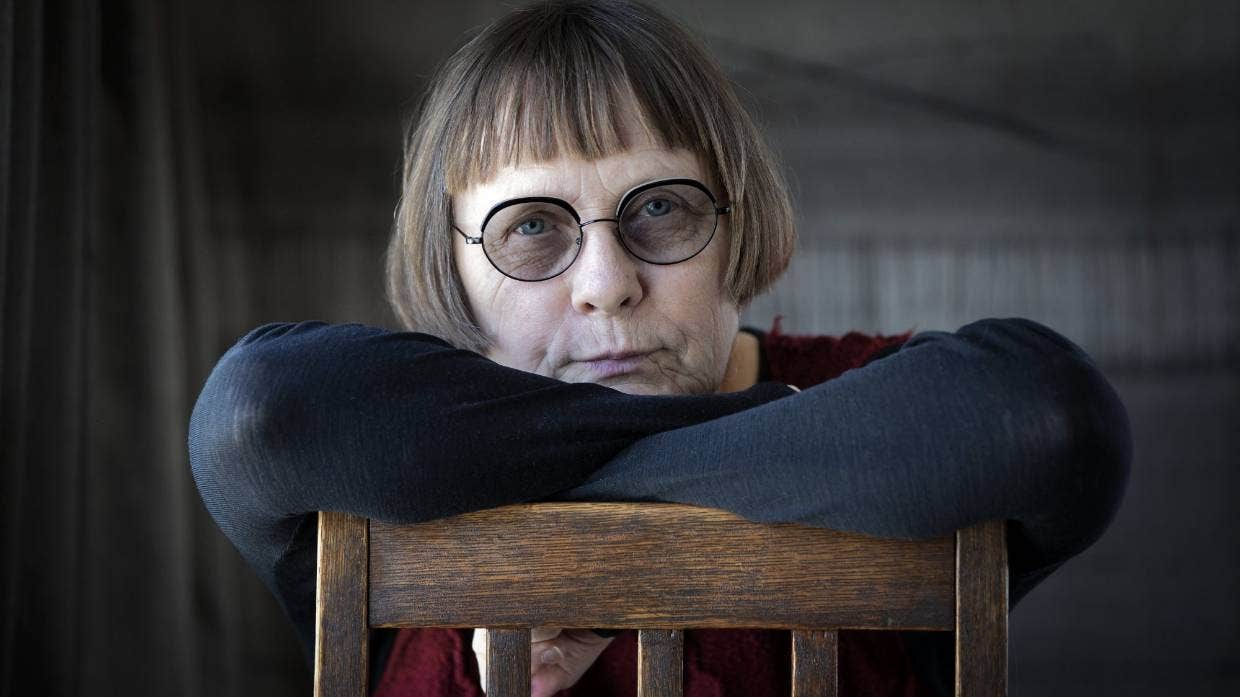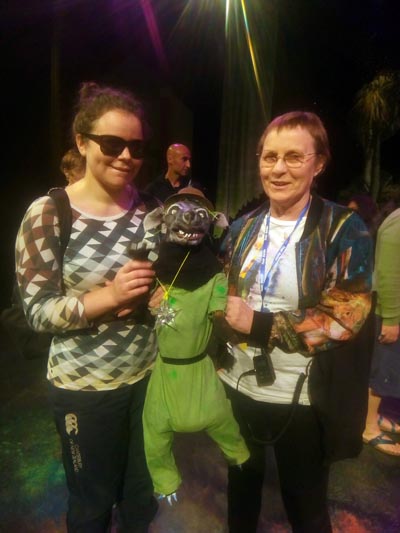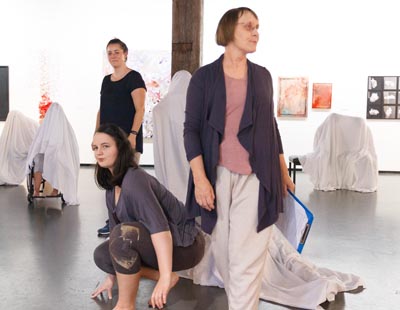The choice to be an advocate and an agitator in an intentional way came about as I started to put audio description into action – after training in 2014.
 I’m still working on understanding what that means for and about me. Starting to train other audio describers and receiving the Arts Access Accolade 2020 have been specific moments recently when I have taken time to explore this.
I’m still working on understanding what that means for and about me. Starting to train other audio describers and receiving the Arts Access Accolade 2020 have been specific moments recently when I have taken time to explore this.
I also dug back a bit to get a sense of what’s forming this approach.
I joined the Arts For All Wellington Network not long after my audio describer training in 2014. It’s a rich opportunity to hear new perspectives, and to stop and think about – sometimes question – the mahi we’re doing and the approaches we’re taking. The network offers incredibly valuable opportunities to hear from others about how they’ve advocated for change, both successfully and unsuccessfully.
This is challenging work. I’m constantly saddened and frustrated by stories of injustice and exclusion, the reasons given for putting access last in a project, and people deciding “code” is enough.
In the arts sector of Aotearoa New Zealand, we should be doing better than this. We need to own how many people we’re still leaving out and recognise how much our arts sector loses out when everyone is not here.
This all strengthens my determination to be an effective ally for arts for everyone.
“It’s not about you”
In 2014, I researched what the community was saying about this self-appointed role. How could I be effective, alongside others, to support meaningful, sustainable change?
 I learned that being an ally can mean having a shared commitment to a cause, AND prioritising collaboration – at the same time recognising the identity politics, who has the right to speak, who has the lived experience.
I learned that being an ally can mean having a shared commitment to a cause, AND prioritising collaboration – at the same time recognising the identity politics, who has the right to speak, who has the lived experience.
I took down these words from Maysoon Zayid.
“When the community you’re advocating for is speaking, listen: this is not about you. Too often I see allies get their feelings hurt because a member of the community corrects them. A true advocate does not make it about themselves.”
When I think about how being an advocate is about listening to your community, I go right back, decades back, to what I refer to as “my Velcro moment”, a click moment but with Velcro. A single experience from which my understanding took an incremental leap.
I was working at the (then) IHC pre-school in Wellington. I’d had minimal experience with children and so I read all the hefty texts about developmental theory. I was set the task of creating learning paths for several of the youngsters, so I researched away and decided one child needed to learn to tie their shoelaces.
I created a pathway breaking down the actions and presented this to the child’s mother. She listened, then simply said, “Velcro, we use velcro for fastening. It works fine.”
How frustrating my theoretical approach, not even starting with a discussion with her, must have been for that parent and I am deeply sorry for that.
Ableism and me – ulp!
I now have the word for the approach I took then: ableism.
I’m intentionally exploring all the time what ableism is and its effects. More particularly how to recognise this in my own thinking or immediate approach to something.
 In my audio description work, I always specifically consider “What I know – and how I know it”. I’m engaged in an ongoing exploration into the origins of my responses to things – and discovering ableism in the mix can be confronting. It’s a useful concept though, something to sit with, when such attitudes do emerge.
In my audio description work, I always specifically consider “What I know – and how I know it”. I’m engaged in an ongoing exploration into the origins of my responses to things – and discovering ableism in the mix can be confronting. It’s a useful concept though, something to sit with, when such attitudes do emerge.
As an advocate and, hopefully, an influencer, I work hard to source and share the voices of people with lived experience of disability, when I am discussing access, and/or ableism in response. I have a file of terrific articles about, for example, the reasons not to create simulation exercises, something which comes up over and over when talking about creating experiences for the blind and low vision community.
Where am I with advocacy now?
Audio description is something I can do, with intention, to make a difference. Whenever I deliver this, it’s such a joy. I love everything about it. It brings together so much of who I am and what I’ve done through a long career using words one way or another.

I’m committed to supporting our growing community of practice of audio describers in Aotearoa, exploring together how to create meaningful work, relevant to this place and our people.
The memories of creating meaningful work, and the personal connections I make through audio description anchor me when the rest of advocacy gets gnarly, and I’m disappointed or cross.
I’ll keep actively exploring the realm of advocacy and being an ally. How to understand what that means in practice.
How for it to be me – and still not about me.
Judith Jones is a host at Te Papa Tongarewa, and is a member of the Arts For All Wellington Network. Listen to Judith Jones’ acceptance speech when she received the Arts Access Accolade 2020.


